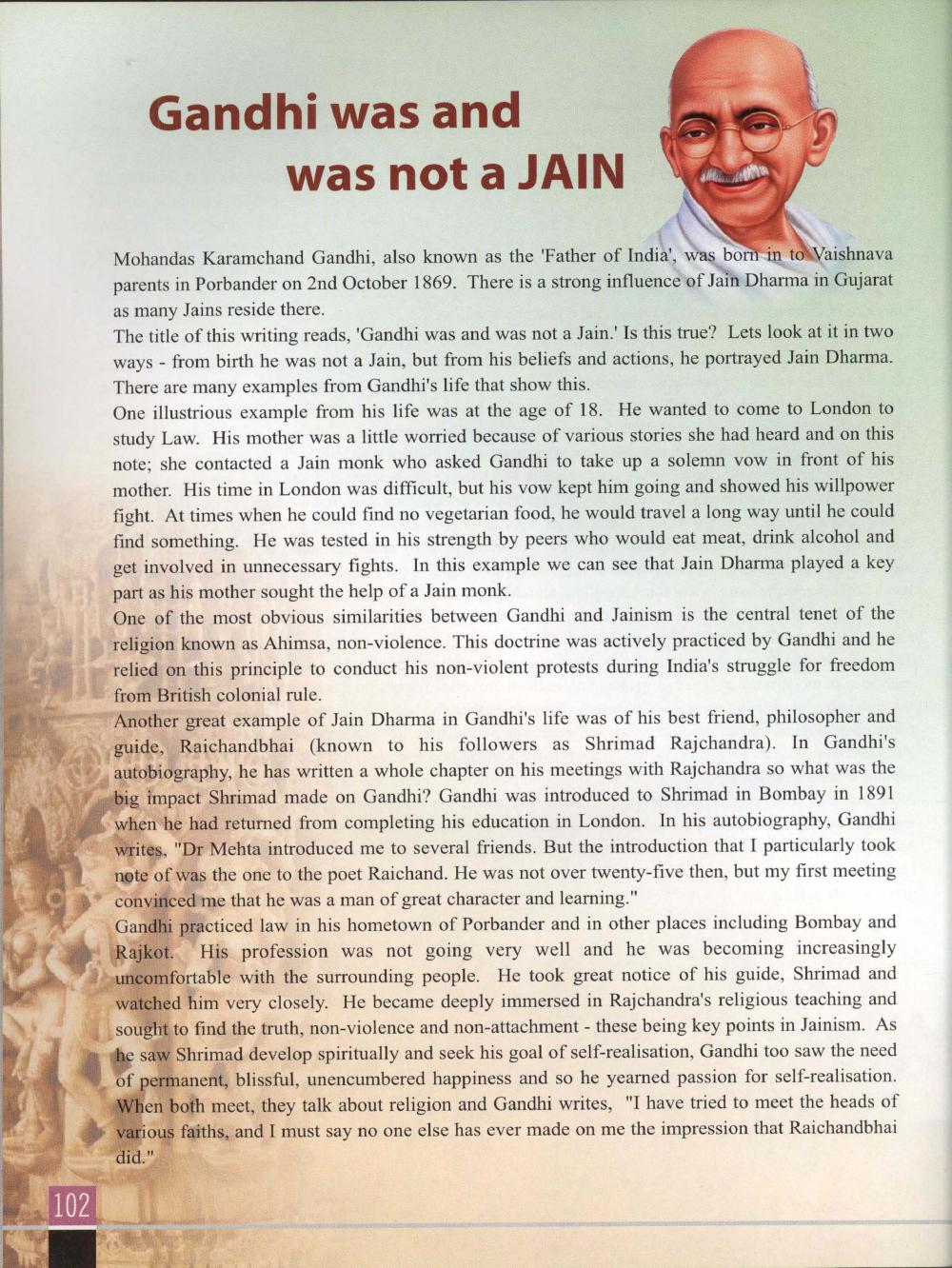________________
102
Gandhi was and
was not a JAIN
Mohandas Karamchand Gandhi, also known as the 'Father of India', was born in to Vaishnava parents in Porbander on 2nd October 1869. There is a strong influence of Jain Dharma in Gujarat as many Jains reside there.
The title of this writing reads, 'Gandhi was and was not a Jain.' Is this true? Lets look at it in two ways from birth he was not a Jain, but from his beliefs and actions, he portrayed Jain Dharma. There are many examples from Gandhi's life that show this.
One illustrious example from his life was at the age of 18. He wanted to come to London to study Law. His mother was a little worried because of various stories she had heard and on this note; she contacted a Jain monk who asked Gandhi to take up a solemn vow in front of his mother. His time in London was difficult, but his vow kept him going and showed his willpower fight. At times when he could find no vegetarian food, he would travel a long way until he could find something. He was tested in his strength by peers who would eat meat, drink alcohol and get involved in unnecessary fights. In this example we can see that Jain Dharma played a key part as his mother sought the help of a Jain monk.
One of the most obvious similarities between Gandhi and Jainism is the central tenet of the religion known as Ahimsa, non-violence. This doctrine was actively practiced by Gandhi and he relied on this principle to conduct his non-violent protests during India's struggle for freedom. from British colonial rule.
Another great example of Jain Dharma in Gandhi's life was of his best friend, philosopher and guide, Raichandbhai (known to his followers as Shrimad Rajchandra). In Gandhi's autobiography, he has written a whole chapter on his meetings with Rajchandra so what was the big impact Shrimad made on Gandhi? Gandhi was introduced to Shrimad in Bombay in 1891 when he had returned from completing his education in London. In his autobiography, Gandhi writes, "Dr Mehta introduced me to several friends. But the introduction that I particularly took. note of was the one to the poet Raichand. He was not over twenty-five then, but my first meeting convinced me that he was a man of great character and learning."
Gandhi practiced law in his hometown of Porbander and in other places including Bombay and Rajkot. His profession was not going very well and he was becoming increasingly uncomfortable with the surrounding people. He took great notice of his guide, Shrimad and watched him very closely. He became deeply immersed in Rajchandra's religious teaching and sought to find the truth, non-violence and non-attachment these being key points in Jainism. As he saw Shrimad develop spiritually and seek his goal of self-realisation, Gandhi too saw the need of permanent, blissful, unencumbered happiness and so he yearned passion for self-realisation. When both meet, they talk about religion and Gandhi writes, "I have tried to meet the heads of various faiths, and I must say no one else has ever made on me the impression that Raichandbhai did."




